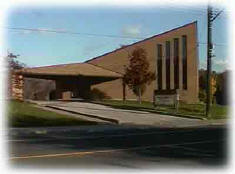|
The Secret
Author: Rhonda
Byrne
Reviewer:
Katharina Manassis
|
 |
Since being touted by Oprah Winfrey as the book that changed her life, “The
Secret” has been flying off the shelves of bookstores across North America.
I bought a copy last summer to see what all the fuss was about.
What I found was an interesting collection
of quotes and short writings from American self-help gurus and famous people
throughout the ages which contain some common ideas. These common ideas,
referred to by the author as “the secret”, emerge slowly over the course of
the book, keeping the reader turning the pages with anticipation. From
Emerson to Einstein, luminaries in every field are said to have grasped and
lived according to “the secret”.
What is this secret? In a nutshell, the
idea is that you should regularly envision what you want, avoid envisioning
what you don’t want, and assume that what you want will be provided
eventually. For example, if you want to eliminate poverty, you should not
imagine eliminating poverty. Instead, you should imagine creating
prosperity. If you want to get a parking spot at the mall, imagine seeing
it and assume it will be there waiting for you.
This makes sense to me. After
all, focusing on what you want creates a sense of optimism, which is
energizing, and makes it more likely you will actually achieve your goal.
Similarly, assuming that good things will come your way is reassuring,
allowing you to become more relaxed and friendly. People tend to be nice to
you when you relate to them in a relaxed and friendly way, making it more
likely that good things will indeed come your way. These are logical,
self-fulfilling prophecies.
Unfortunately, “The Secret”
takes this approach one step further, and here’s where it gets a little
strange. Byrne and those she quotes claim that by imagining what you want
and assuming it will happen, you somehow influence the universe (or
Universe, depending on one’s beliefs) to send it your way. In other words,
“believe something good will happen, and it will”. I wonder what Holocaust
survivors or people suffering from terminal illnesses would say to that.
Did their misfortune happen because they did not believe in “the secret”?
It is unimaginably cruel to even suggest that. Is also seems a little
superstitious. A lot of awful things are simply beyond our control, no
matter how many rosy alternative scenarios we envision.
In summary, although some of
the ideas in this book may be helpful, one does need to read “The Secret”
with a healthy skepticism. The parking spot trick seems to work, though.
Try it!




